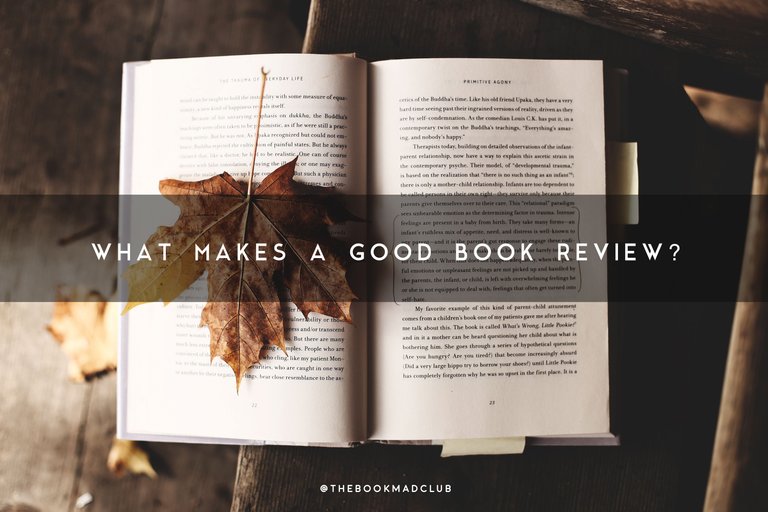
When I finally found the courage to start this blog, my first question was, how the hell does one become a book reviewer? I was pretty sure it was more than just reviewing the actual book, and in one simple search, Google confirmed that for me.
The premise seems logical; you like to read, you want to write, write book reviews! But as I brainstormed for this project, I realized you aren't just leaving a comment on a site about how the story made you feel, if the book made you feel something at all, the main idea of a book review is not stating if you liked it or not.
There's always this moment when you are half-way a book, and you are thinking of throwing it to the garbage of how awful it is. You feel like you are wasting time with it and honestly, there's a point where you actually want to ask the author what the hell were they thinking. But that doesn't mean you should write that in a review.

There's effort behind every piece you get your hands on; there are hours of frustration, brainstorming and precious time of the authors' lives invested in getting their message out. Just because you don't agree with them, or perhaps you weren't able to fully understand where they were coming from with their story, it doesn't mean they deserve a bitchy review from us.
It's okay to point out the irritating or frustrating parts of the story where you felt like it wasn't flowing as smoothly as you wished it was; however, criticizing the name of one character or stating you expected more, makes the review too personal.
The "this is how I'd do it" vibe misses the point of the review because you are not writing about you. Your emotive responses do play a fair part on it and will be reflected in your words, but at the end of the day, it's not about if the book met your expectations or not. Readers look for reviews because the synopsis of the book didn't do the trick for them and needed more information about to story to know if they want to read it or not.
As a book reviewer, you give that information.

Good reviews are made of balanced feelings, even if the book kind of, sort of, sucked. It's supposed to provide the reader enough information to decide for themselves whether or not this book is worth spending their valuable and time on, without spoiling the book.
Each story behind the books you read has something worth highlighting; whether it was the author's writing or the realness of a character, even if the plot wasn't that eye-catching, it's nearly impossible not to find anything good in a book.

In love with this post.
Nice post. I am also going to start writing some reviews of books I read as my company encourages reading books and I been reading more often.